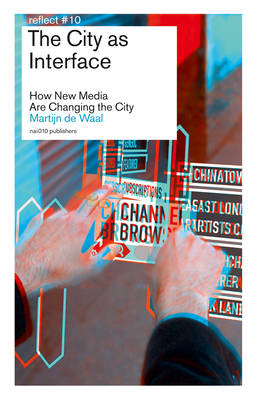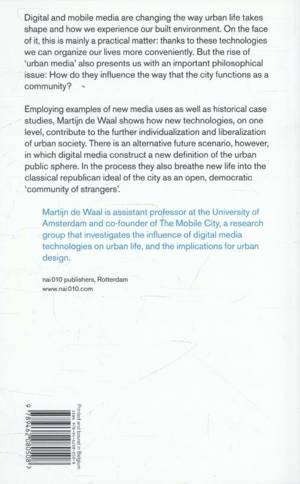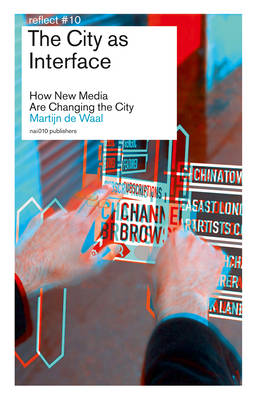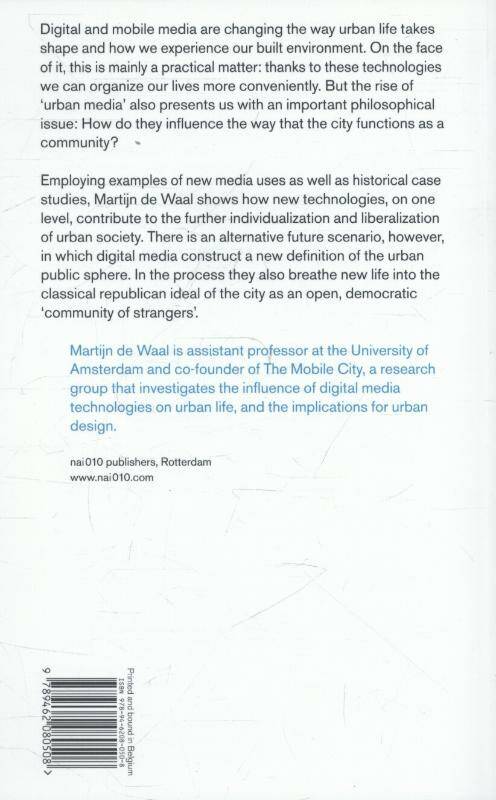
Bedankt voor het vertrouwen het afgelopen jaar! Om jou te bedanken bieden we GRATIS verzending (in België) aan op alles gedurende de hele maand januari.
- Afhalen na 1 uur in een winkel met voorraad
- In januari gratis thuislevering in België
- Ruim aanbod met 7 miljoen producten
Bedankt voor het vertrouwen het afgelopen jaar! Om jou te bedanken bieden we GRATIS verzending (in België) aan op alles gedurende de hele maand januari.
- Afhalen na 1 uur in een winkel met voorraad
- In januari gratis thuislevering in België
- Ruim aanbod met 7 miljoen producten
Zoeken


Omschrijving
In this thought-provoking book, Martijn de Waal, Assistant Professor at the University of Amsterdam, discusses the ways in which digital and mobile media are changing urban life and our everyday experience of our physical surroundings. Few would deny the convenient and engaging nature of new media. But, probing deeper, de Waal delves into how the rise of these "urban media" also presents an important philosophical issue: how do they affect how the city functions as a community? Employing examples of new media implementations as well as historical case studies, the author shows how these emerging technologies contribute to both the individualization or liberation and the fragmentation of urban society. Most importantly, he also outlines an alternative scenario in which digital media may enable a new definition of the urban public sphere, reinvigorating the classical republican ideal of the city as an open, democratic "community of strangers."
Specificaties
Betrokkenen
- Auteur(s):
- Uitgeverij:
Inhoud
- Aantal bladzijden:
- 208
- Taal:
- Engels
- Reeks:
- Reeksnummer:
- nr. 10
Eigenschappen
- Productcode (EAN):
- 9789462080508
- Verschijningsdatum:
- 31/08/2014
- Uitvoering:
- Paperback
- Formaat:
- Trade paperback (VS)
- Afmetingen:
- 146 mm x 227 mm
- Gewicht:
- 326 g

Alleen bij Standaard Boekhandel
+ 70 punten op je klantenkaart van Standaard Boekhandel
Beoordelingen
We publiceren alleen reviews die voldoen aan de voorwaarden voor reviews. Bekijk onze voorwaarden voor reviews.










